How To Make Hard-Boiled Eggs In A Pressure Cooker
I love making deviled eggs, but getting the hard-boiled eggs perfect keeps me from making them very often. So how can you make perfect hard-boiled eggs? Pressure cook them! Here’s how to use a pressure cooker to make hard-boiled eggs.
Why a Pressure Cooker Works Well for Hard-Boiled Eggs
- Faster in overall prep time: While pressure cooking doesn’t seem to reduce the cooking time by much, it significantly reduces prepping time. It only took seconds to begin to peel. The perfect timing also prevented overcooked eggs with green rings around the yolk.
- Easier peeling: The pressure creates a steam environment that helps loosen the proteins between the egg white and the shell. The shells were coming off in two simple pieces, the top and bottom. I love it!
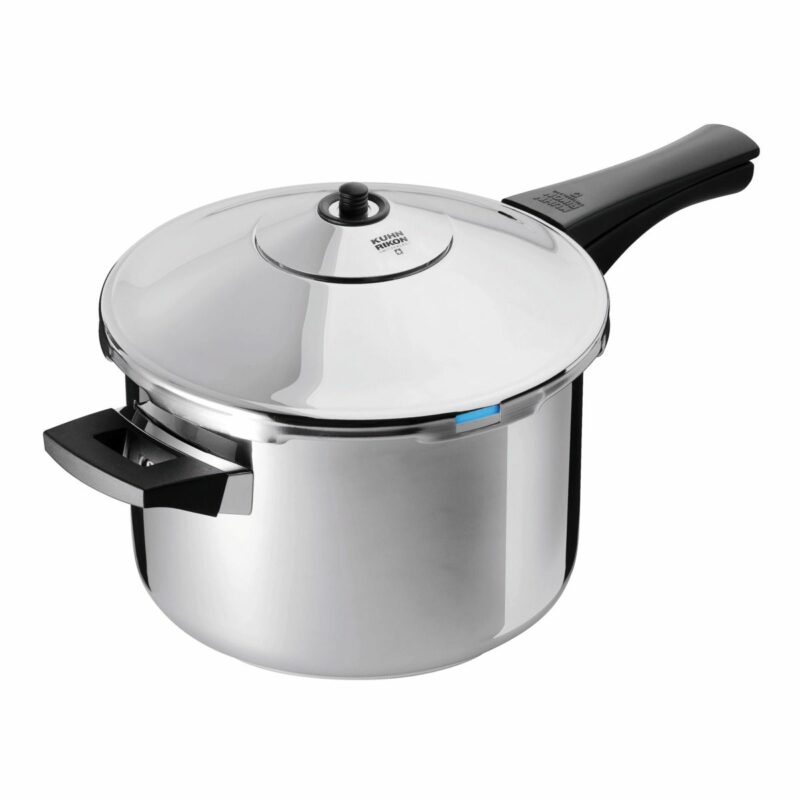
“You can find this pressure cooker on Amazon. As Amazon Associates, we earn a small amount from qualifying purchases. Thank you if you purchase through our link!“
My favorite pressure cookers are the Kuhn Rikon pressure cookers, no competition for me. Not even the InstaPot made me as happy as my Kuhn Rikon!
Let’s Make Hard-Boiled Eggs in a Pressure Cooker
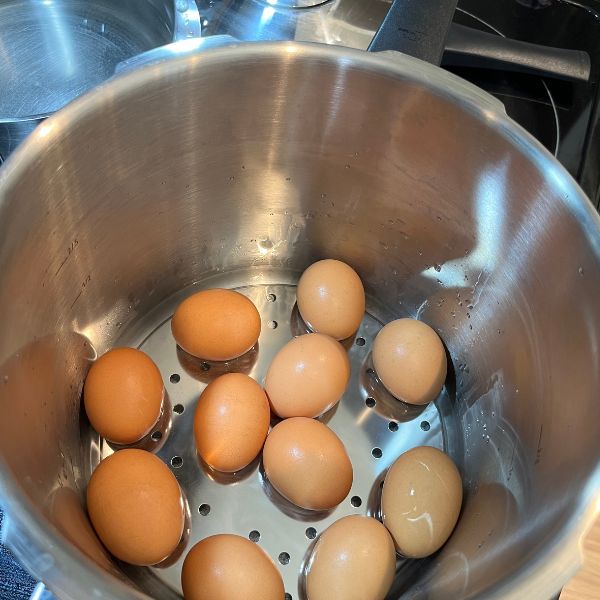
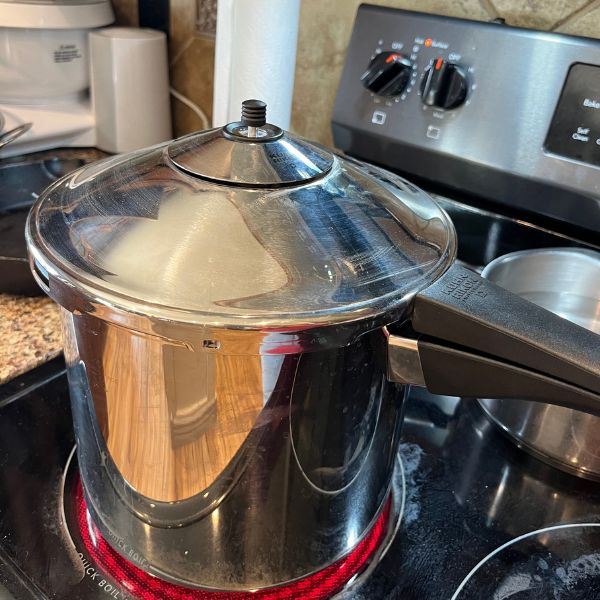
The key is fresh eggs, and steam in making the eggs perfect. Add your steam basket or steam plate, and add 2 cups of water. Bring to a boil, and add a single layer of fresh eggs. The timer is set at 12 minutes for hard-boiled eggs. See the recipe below for other times on how long to pressure for cooked egg preferences.
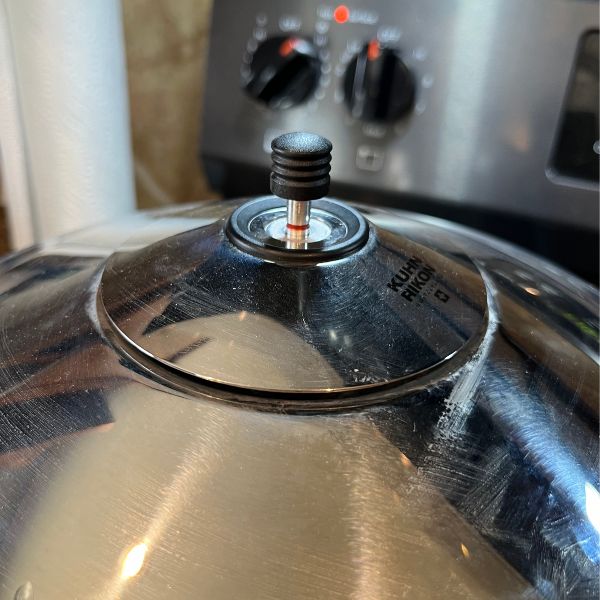
Stabilizing the heat on a pressure cooker is key to achieving good results. For the eggs, once the medium heat is reached, (1st ring on a Kuhn Rikon Pressure Cooker), you can slide the cooker off the burner halfway or more, and turn the heat down. Keep an eye on the ring and adjust up or slide back further as needed to stabilize the heat.
Get a bowl of ice water ready for a quick dunk, they will cool right down.
When the timer goes off, quick-release the pressure. If you’re using a different pressure cooker, follow the directions on your cooker for quick-release. When I removed the lid, only one had cracked open but it was unharmed and the shell came right off.
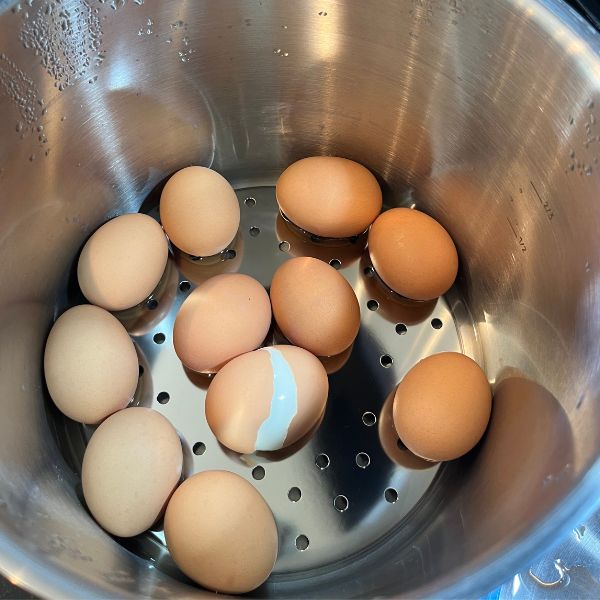
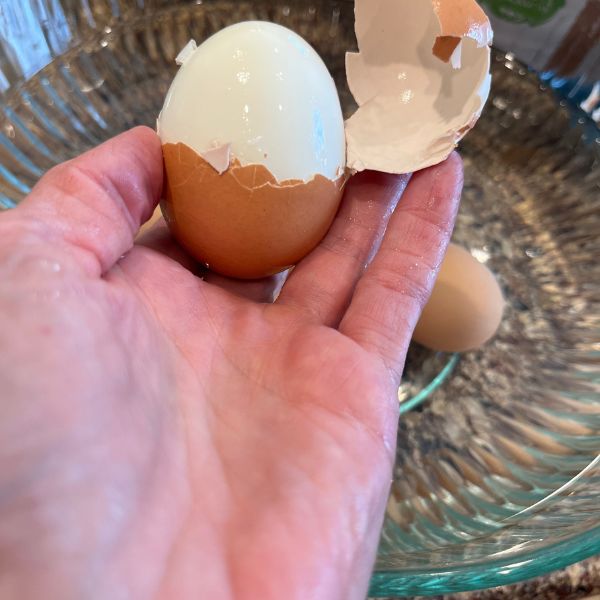
Peeling eggshells is the most dreaded part of making hard-boiled eggs. I rarely made them because I could never get them just right. And boy, they did not look appetizing at all with scuffs and holes. I was told egg freshness was the issue. I must have never had a fresh egg.
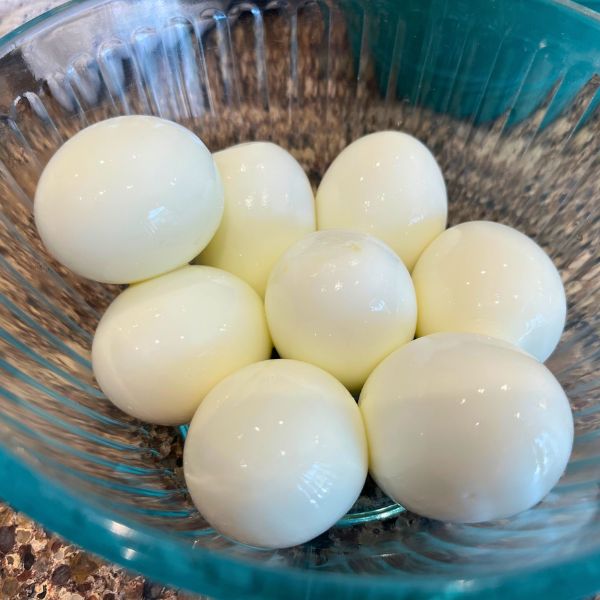
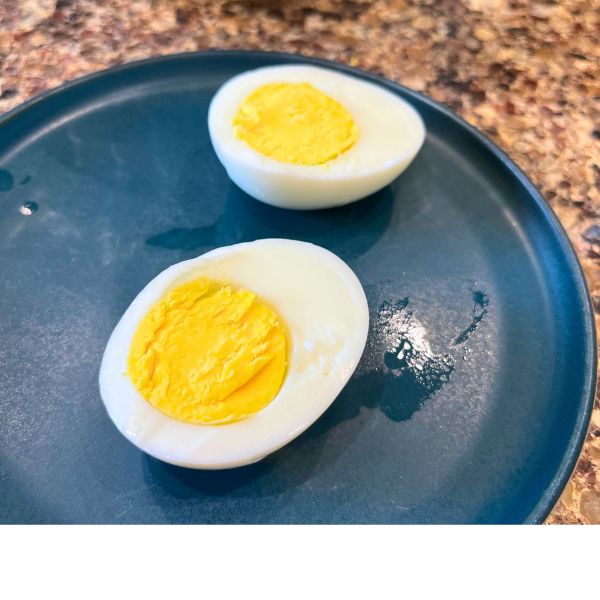
The eggs came right out of the shells and were beautiful. The total time from boiling the water to shelling the eggs was less than 20 minutes.
I was thrilled when I discovered the pressure cooking method for eggs. Give it a try and enjoy!
Theresa
PrintHow To Make Hard-Boiled Eggs In A Pressure Cooker
- Total Time: 16 minutes
- Yield: 12 Eggs
Description
This is a surefire way to make perfect hard-boiled eggs!
Ingredients
Fresh eggs – One layer for the bottom of the pressure cooker
2 c. water
Bowl of ice water
Pressure Cooker/Steam Trivot/Basket
Instructions
- Place 2 c. of water into the cooker and heat to boil.
- Lay the eggs on the steamer plate.
- Put on the lid and bring to the first ring on the pressure valve.
- Set the timer for 12 minutes for hard-boiled, 9 minutes for creamy, 7 minutes for soft, 4 minutes for very runny.
- When the timer goes off, quick-release the pressure.
- Remove the lid and place the eggs into the ice water for only a few minutes. The eggs will cool down quickly.
- Peel the eggs immediately. Use in your recipe, or store in the refrigerator. Enjoy!
Notes
- You need to play with the times for the levels of how cooked you like your eggs. 12 minutes was perfect for hard-boiled.
- Look at your pressure cooker manual to determine how to use quick release, a steamer basket, and set at medium heat, if you’re not using a Kuhn Rikon Pressure Cooker.
- Prep Time: 4 minutes
- Cook Time: 12 minutes
- Category: Breakfast
- Method: Cooking
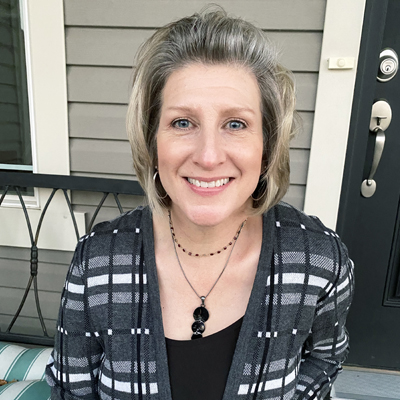
We love publishing our recipes, sharing and teaching sewing, knitting, embroidery and fun crafts. We’re glad you’re here!



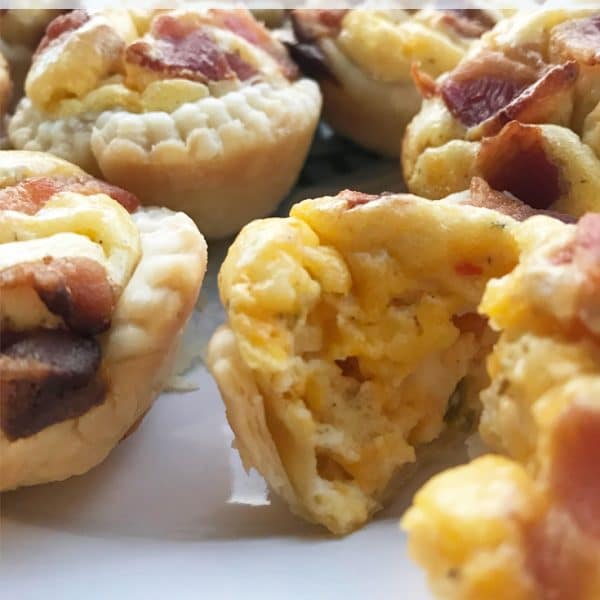

Looking forward to trying